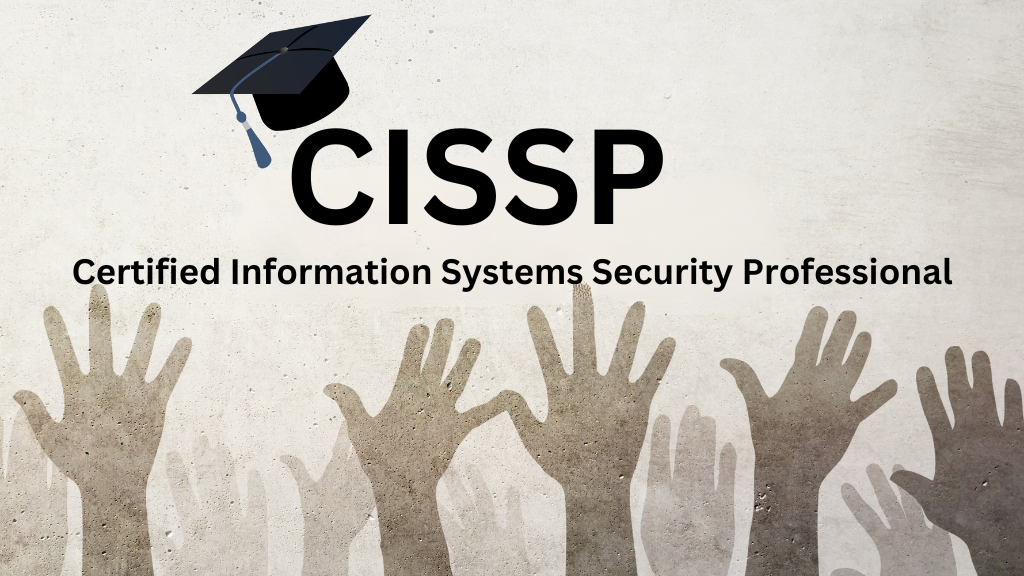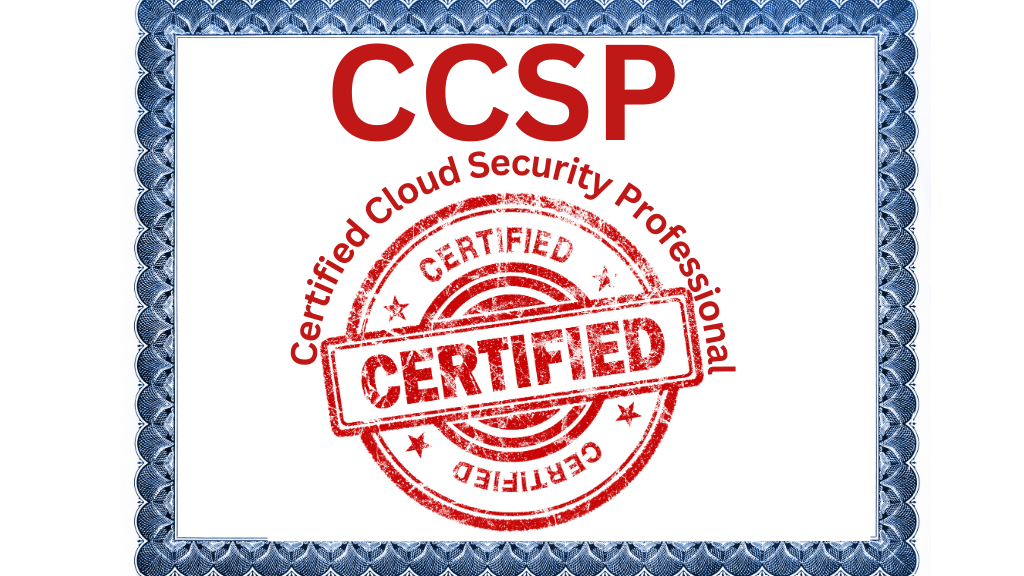In the ever-evolving landscape of information security, certifications play a crucial role in demonstrating expertise and advancing one’s career. Two prominent certifications in the field of cybersecurity are CISSP (Certified Information Systems Security Professional) and CCSP (Certified Cloud Security Professional). Both certifications hold immense value and are highly sought by professionals looking to establish themselves in the field. This post will delve into the key differences, benefits, and considerations of CISSP vs. CCSP, helping you decide which certification aligns best with your career aspirations.
CISSP vs. CCSP
As organizations greatly rely on technology and digital infrastructure, the need for skilled professionals to safeguard sensitive information becomes paramount. CISSP and CCSP certifications validate the proficiency and knowledge required to tackle modern cybersecurity challenges effectively.
CISSP Overview

The CISSP certification is globally recognized and covers various information security domains. It is designed for professionals with a strong security management and architecture background. CISSP evaluates an individual’s expertise in asset security, security operations, and risk management.
Also, Check: CEH vs.OSCP: Making the Right Choice for Your Cybersecurity Career
CISSP Exam Cost
To earn the CISSP certification, candidates must pass an exam that consists of multiple-choice questions, testing their understanding of various security domains. The exam fee is about $749, subject to regional variations.
CISSP Certification Requirements
To qualify for CISSP, candidates must have at least five years of cumulative, paid, full-time working background in two or more of the eight CISSP domains. A relevant 4-year college degree or an approved credential can waive one year of the required experience.
CISSP Pass Rate
The CISSP exam is rigorous and demands extensive preparation. The pass rate for the CISSP certification hovers around 50-60%. Adequate study resources and focused preparation are crucial for success.
CISSP Study Resources
Candidates can access various study resources, including official ISC² training material, practice exams, and books authored by experts in the field. Joining study groups and attending boot camps can also enhance the learning experience.
CCSP Overview

The CCSP certification is tailored for professionals who specialize in securing cloud environments. It validates an individual’s ability to design, control, and secure data, apps, and infrastructure in the cloud. CCSP encompasses topics like cloud architecture, operations, and legal considerations.
CCSP Exam Cost
To attain the CCSP certification, candidates must pass an exam that evaluates their knowledge of cloud security concepts and practices. The exam fee is about $599, depending on the candidate’s location.
CCSP Certification Requirements
CCSP requires at least five years of cumulative, paid, full-time work experience in information technology, including three years in information security and one year in one or more of the six CCSP domains. A valid CISSP certification can substitute for the entire CCSP work experience requirement.
CCSP Pass Rate
The CCSP exam requires thorough preparation and a solid understanding of cloud security principles. The CCSP certification pass rate is approximately 70%. Diligent studying and hands-on experience with cloud technologies are vital for success.
CCSP Study Resources
Candidates preparing for the CCSP exam can utilize study materials provided by the (ISC)², including official guidebooks and practice tests. Additionally, online forums and professional networks can offer valuable insights and support during the learning journey.
CISSP vs. CCSP: A Comparative Analysis
Focus Areas
While CISSP covers many security domains, CCSP concentrates on cloud security. CISSP provides a broader understanding of information security principles, whereas CCSP delves deep into securing cloud environments and addressing associated challenges.
Target Audience
CISSP caters to professionals involved in information security, including security consultants, managers, and auditors. On the other hand, CCSP is aimed at individuals working directly with cloud technologies, such as cloud security architects and administrators.
Industry Relevance
Both certifications hold significant industry recognition and are highly regarded by employers. CISSP is well-suited for professionals working across different sectors, whereas CCSP is particularly relevant for those operating in cloud-centric organizations or industries.
Job Opportunities and Salaries
CISSP opens doors to many job opportunities, including security analyst, consultant, and auditor roles. CCSP, focusing on cloud security, enhances career prospects in roles like cloud security architect, cloud engineer, and security consultant. Salaries for both certifications vary based on experience, location, and job responsibilities.
Complementary Certifications
Professionals holding CISSP can benefit from pursuing CCSP as a complementary certification, as it enhances their specialization in cloud security. Similarly, CCSP holders can consider obtaining CISSP to broaden their knowledge and strengthen their cybersecurity expertise.
Choosing the Right Certification for You
Consider Your Expertise and Goals
Evaluate your skills, experience, and career goals to determine which certification aligns better with your aspirations. If you have a strong foundation in information security and seek a comprehensive understanding across domains, CISSP might be the ideal choice. On the other hand, if you are passionate about cloud security and intend to specialize in that area, CCSP can offer targeted knowledge and opportunities.
Assess the Job Market
Research the job market to identify employers’ certification requirements and preferences in your desired industry or region. This analysis will provide insights into which certification holds more value and offers better job availability and career growth prospects.
Seek Expert Advice

Engage with professionals who hold CISSP and CCSP certifications to gain firsthand insights into their experiences, challenges, and the impact of these certifications on their careers. Their guidance can assist you in making an informed decision that aligns with your circumstances.
Conclusion
The decision between CISSP and CCSP certifications can be crucial for professionals seeking to establish a successful career in cybersecurity. While both certifications hold significant value and demonstrate expertise in their respective domains, understanding their nuances is essential to making an informed choice.
To further explore and advance your cybersecurity journey, consider contacting NextDoorSec, a reputable cybersecurity firm. With their expertise in the field, they can provide valuable guidance, practical insights, and tailored solutions to help you thrive in the ever-evolving world of cybersecurity.






0 Comments